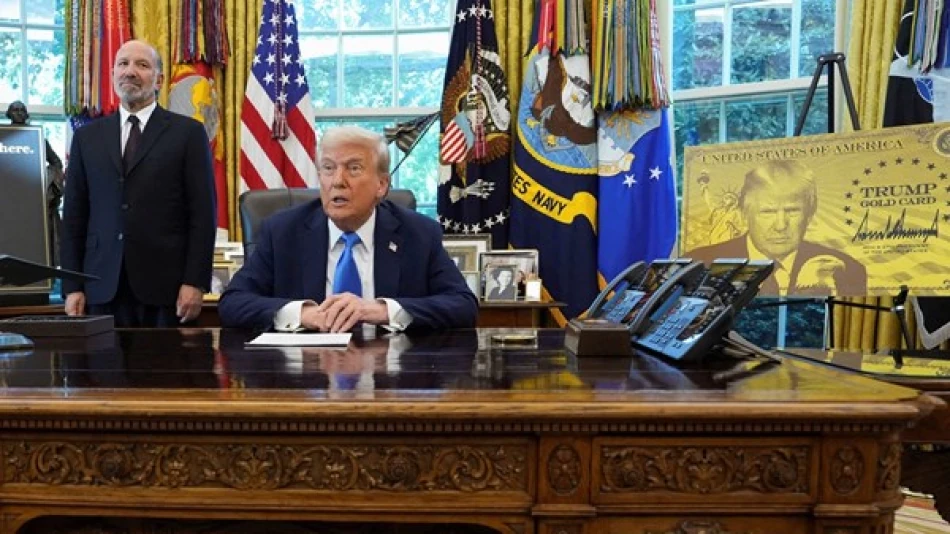
Trump Threatens Venezuela if it Refuses to Repatriate Migrants
Trump Escalates Venezuela Standoff with Naval Deployment and Deportation Ultimatum
President Donald Trump has issued a stark ultimatum to Venezuela, demanding the immediate repatriation of migrants he claims were "forced to enter the United States," while deploying eight warships to Caribbean waters. The dual-pronged pressure campaign marks a significant escalation in U.S.-Venezuela tensions and signals Trump's intent to use military positioning as leverage in immigration disputes.
The Deportation Demand
Trump's Saturday statement specifically called for Venezuela to "immediately receive all prisoners and mental health facility residents... who were forced to enter the United States of America." The president warned that failure to comply would result in consequences that would be "extremely costly" for the South American nation.
This language represents a notable hardening of Trump's immigration rhetoric, directly accusing the Venezuelan government of deliberately exporting undesirable populations to the U.S. The claim echoes similar allegations Trump has made against other Latin American countries, suggesting a broader strategy of holding origin countries accountable for migration flows.
Naval Show of Force
The deployment of eight U.S. warships to Caribbean waters, officially framed as an anti-drug trafficking operation, provides unmistakable military backing to Trump's diplomatic demands. This naval presence significantly exceeds typical counter-narcotics deployments and positions American forces within striking distance of Venezuelan territory.
Venezuela Responds with Military Exercises
Caracas quickly answered the U.S. naval deployment with its own military maneuvers on La Orchila Island, located approximately 65 kilometers from the Venezuelan mainland. The exercises demonstrate Venezuela's determination not to appear intimidated by American military pressure, despite the vast disparity in naval capabilities.
Historical Context and Escalation Pattern
This confrontation follows a familiar pattern in U.S.-Venezuela relations, where immigration disputes become entangled with broader geopolitical tensions. Previous administrations have used economic sanctions as primary leverage against Caracas, but Trump's approach combines immigration enforcement with direct military positioning—a more aggressive stance that raises stakes considerably.
The timing also reflects Trump's broader immigration crackdown, which has already targeted multiple countries with deportation demands and threats of economic retaliation. Venezuela's inclusion in this campaign is particularly significant given the country's ongoing economic crisis and the millions of Venezuelans who have fled to neighboring countries.
Strategic Implications
Trump's approach represents a calculated gamble that military pressure will force Venezuelan compliance where diplomatic and economic measures have failed. However, the strategy carries significant risks, including potential escalation into direct confrontation and the possibility of strengthening domestic support for President Nicolás Maduro's government.
For regional stability, the naval deployment signals to other Latin American countries that Trump is willing to use military assets to enforce immigration policies—a message likely intended to influence behavior across the hemisphere. The success or failure of this pressure campaign could establish precedents for how Trump handles similar disputes with other nations reluctant to accept deportees.
Most Viewed News

 Layla Al Mansoori
Layla Al Mansoori






